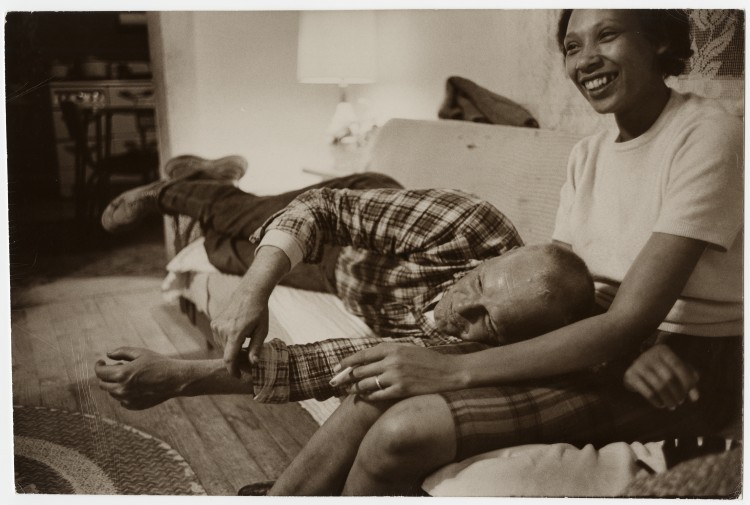Though unsentimental to a fault, Loving is a surprising and beautiful portrait of the reluctant revolutionaries, Richard and Mildred Loving
Movies based on real events often fall into the trap of just showing plot point after plot point, often at the expense of real character development. Take The Theory of Everything or J. Edgar. However, when it goes right — see The Social Network or Malcolm X — it could be something truly amazing. In Jeff Nichols' Loving, the entire movie is made up of the moments between the plot points. This is not a story about the case Loving v. Virginia. This is a story about Richard and Mildred Loving.
Interest in the Lovings has been renewed with the legalization of gay marriage earlier this year. The Loving v. Virginia case was even cited in the majority opinion. As one-half of a gay interracial couple, I owe a lot to the Lovings. However, if I ever got the chance to thank them in person, I think they would shrug it off. The Lovings weren't looking to change the world. When the film begins, they are just a couple excited that they are expecting their first child.
Like any decent man in the 1950s, Richard asks Mildred to marry him. So, they hike up to Washington, D.C. to be wed. For them, even marriage is a modest affair. They didn't even tell her mother and sister. However, as simple as they wanted their lives to be, it got a lot more complicated when the police broke into their home to arrest them for violating anti-miscegenation laws.
Jeff Nichols is a master at knowing where to point his camera. Seemingly random shots like that of a group of men drinking around a table or two women hanging clothes take on a new meaning in this film. The former is a form of scathing judgment, the latter is a form of acceptance. It adeptly portrays the dark period of time in this country. However, that darkness is juxtaposed against the love story of the Lovings.
For such a quiet movie, Loving moves at a lightning pace. We cover nearly two decades of the Lovings lives. Thanks to the incredible craft, particularly the costumes and editing, we feel like we are dropped into those periods. As we watch their children grow up and their case progress, we watch their everyday lives (with one too many bricklaying scenes — literal bricklaying). However, when there are more emotional scenes, Nichols adds the flair that he showed in Midnight Special earlier this year. One of those scenes show a photo shoot the Lovings did with time, which yielded one of the most famous photos of the couple:
My biggest criticism of the film is that it's unsentimental, often to a fault. Sometimes you just want to yell at the screen and tell them to show some emotion. It was an interesting choice. The Loving story is ripe for big emotional reactions, grandstanding speeches, and difficult to watch scenes. Instead, Nichols finds emotion in the stolen glances and soft reactions.
Without Ruth Ann Negga and Joel Edgerton in the role of the Lovings, the movie could have easily faltered. They perfected a chemistry that few on-screen pairs can achieve. Negga's performance, in particular, is a revelation. She is an emotional powerhouse with such little dialogue. Scenes like when she discovers they've won are quietly powerful.
Loving isn't a film trying to be bigger than it is. Honestly, that's how I think the Lovings would have wanted it. You can call them reluctant heroes or revolutionaries. What they really were was a married couple that wanted to live in their home state. The film could have tried to make a stand on the fundamental right to marry, but it's not even a question that they felt they needed to answer. While in the film we do hear that they're happy to help other couples like them, it isn't a triumphant declaration. It was more of a nice sentiment. In the end, the struggle they went through could be justified in a single line that Richard directed at the Supreme Court: “tell them I love my wife.”
8/10
Get Loving on DVD, Blu-Ray, or digital on Amazon!
Hey, I'm Karl, founder and film critic at Smash Cut. I started Smash Cut in 2014 to share my love of movies and give a perspective I haven't yet seen represented. I'm also an editor at The New York Times, a Rotten Tomatoes-approved critic, and a member of the Online Film Critics Society.

Comments are closed.